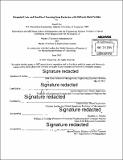| dc.contributor.advisor | David Simchi-Levi and Charles Fine. | en_US |
| dc.contributor.author | Sui, Xiaodi | en_US |
| dc.contributor.other | Leaders for Global Operations Program. | en_US |
| dc.date.accessioned | 2015-09-17T19:07:57Z | |
| dc.date.available | 2015-09-17T19:07:57Z | |
| dc.date.copyright | 2015 | en_US |
| dc.date.issued | 2015 | en_US |
| dc.identifier.uri | http://hdl.handle.net/1721.1/98729 | |
| dc.description | Thesis: S.M., Massachusetts Institute of Technology, Engineering Systems Division, 2015. In conjunction with the Leaders for Global Operations Program at MIT. | en_US |
| dc.description | Thesis: M.B.A., Massachusetts Institute of Technology, Sloan School of Management, 2015. In conjunction with the Leaders for Global Operations Program at MIT. | en_US |
| dc.description | Cataloged from PDF version of thesis. | en_US |
| dc.description | Includes bibliographical references (pages 48-49). | en_US |
| dc.description.abstract | Li & Fung is the leading consumer goods design, development, sourcing and logistics company for global retailers and brands. Its networks cover over 15,000 suppliers and 300 offices and distribution centers in 40 economies around the world. Supply chains in the consumer goods industry are facing challenges due to volatile commodity prices, increasing labor costs and increasing social, political and environmental risk, particularly in the emerging markets. Suppliers, supply chain intermediaries, global brands and buyers are all affected. In such an environment, there is a strong case for understanding the costs and benefits of working with factories with different risk profiles, not only from reputation and risk mitigation standpoints, but also from financial and operational perspectives. The goal of this project is thus to quantify the financial costs and benefits to Li & Fung of sourcing from factories with different risk profiles. The project introduces an end-to-end view of sourcing to quantify the "total cost of sourcing" based on business inputs such as customer, product type and factory performance. The total cost aggregates different costs such as: product cost, switching cost, merchandising labor cost, quality assurance cost and social compliance cost. A new variable - the Total Cost of Sourcing Multiplier - is introduced to allow comparison across a heterogeneous factory base. The new approach will increase the transparency in sourcing process, allowing more informed decision based on business inputs and identify factories with negative financial impact to Li Fung. The results showed: 1. The sourcing problem primarily lies within low-volume factories. However, a number of low-volume factories have low total cost of sourcing multiplier. 2. As a next step, business units should look into individual factories with low-volume and low cost multiplier and identify the drivers of low cost production. For supply chain managers attempting to compete with demand with cost, quality, compliance and risk, the total cost of sourcing model can be used to evaluate supplier network performance. | en_US |
| dc.description.statementofresponsibility | by Xiaodi Sui. | en_US |
| dc.format.extent | 49 pages | en_US |
| dc.language.iso | eng | en_US |
| dc.publisher | Massachusetts Institute of Technology | en_US |
| dc.rights | M.I.T. theses are protected by copyright. They may be viewed from this source for any purpose, but reproduction or distribution in any format is prohibited without written permission. See provided URL for inquiries about permission. | en_US |
| dc.rights.uri | http://dspace.mit.edu/handle/1721.1/7582 | en_US |
| dc.subject | Engineering Systems Division. | en_US |
| dc.subject | Sloan School of Management. | en_US |
| dc.subject | Leaders for Global Operations Program. | en_US |
| dc.title | Financial costs and benefits of sourcing from factories with different risk profiles | en_US |
| dc.type | Thesis | en_US |
| dc.description.degree | S.M. | en_US |
| dc.description.degree | M.B.A. | en_US |
| dc.contributor.department | Leaders for Global Operations Program at MIT | en_US |
| dc.contributor.department | Massachusetts Institute of Technology. Engineering Systems Division | |
| dc.contributor.department | Sloan School of Management | |
| dc.identifier.oclc | 920874338 | en_US |
